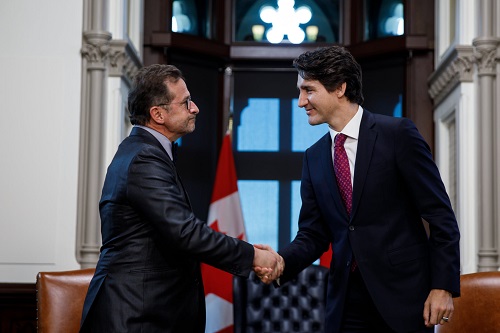The survival of Trudeau’s government it will cost Canadians 16 billion dollars
TORONTO – The forced survival of the minority government led by Justin Trudeau, after NDP took away its support, could cost Canadians a lot: to be precise, 16 billion dollars. In fact, this is the cost of the request that the Bloc Quebecois made to the Prime Minister, in exchange for the support that would allow him to remain in the saddle.
The Bloc has given the government until October 29 to approve the spending on the bill aimed at increasing pensions for all seniors under the age of 75. An operation that would cost, in fact, 16 billion public dollars. If the government fails to support the bill by then, the leader of the Bloc, Yves-François Blanchet, will enter into negotiations with other parties to bring down the minority Liberal government before the new year.
The Liberal government had already increased social security payments, in 2022, but only for people over the age of 75 in 2022, with the intention of supporting the most vulnerable seniors. The Bloc request would greatly expand the pool of interested parties, resulting in another $16 billion in deficit spending. Adding that amount to the budget, on top of money for housing and other issues the federal government wants to address ahead of the next election, would be difficult. Tyler Meredith, a former top economic adviser to Trudeau and two finance ministers and founding partner of the political consultancy firm Meredith Boessenkool & Phillips, said to The Canadian Press: “I’m not sure that’s the most effective use of the money” he said.
Last year, federal Finance Minister Chrystia Freeland promised new fiscal protection measures aimed at limiting spending and deficits, a move that came as pressure mounted to ensure federal spending did not hamper the Bank of Canada’s ability to control inflation. “When it comes to additional support for seniors, we are having good conversations about all possible economic measures with both the Bloc Quebecois and the NDP” Freeland herself said last week. Seniors’ benefits represent a major expense for the federal government, which has grown significantly over the past year as the population ages: Ottawa has spent nearly $70 billion on old-age security payments, the supplement guaranteed income and spousal benefit in 2022. But the Bloc argued that the decision to increase old age benefits only for people aged 75 and over was discriminatory. And now, taking advantage of the crisis triggered by the NDP’s exit, it has returned to office with the request to extend the pension increase to elderly people under 75. Liberals don’t have much time to think about their options. And then, in addition to the deadline imposed by the Bloc Quebecois, they must also submit an autumn economic declaration outlining their spending plans and economic prospects by the end of the year. And votes are needed.
Meanwhile, the House of Commons is expected to vote on further no-confidence motions that could bring down the government in the coming weeks.
In the pic above, Blanchet and Trudeau in a meeting in November 2019 (photo from Justin Trudeau’s Facebook page)



